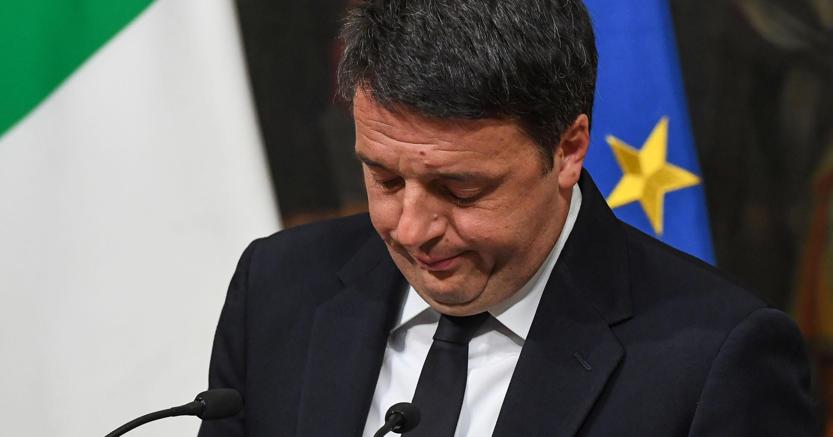
Although this time the polls were right regarding who would win - unlike in the UK on the Brexit vote and in the U.S. on Trump's victory - no one expected there would be such a landslide triumph for the “No” vote in Italy's constitutional referendum yesterday. And that there would be such quick and heavy fallout in the government of Prime Minister Matteo Renzi, who announced that today he tender his resignation to President of the Republic, Sergio Mattarella.
“No” won 59.9% of the popular vote while “Yes” mustered only 40.1%. Moreover “No” conquered almost all 20 Italian Regions, while “Yes” only led in the autonomous Province of Bolzano (in the Northeast) and traditionally leftist Emilia Romagna and Toscana.
Residents abroad (the 1.2 million of them who voted voted) also favored “Yes”, although final results weren't available yet. Among big cities only Milan, Bologna and Florence saw a “Yes” victory.
What the polls didn't quite detect though, was the record turnout at the polling stations: 68.48% of Italians voted, despite the fact that it was the first electoral competition ever held in December. Also, no constitutional referendum has ever registered such high voter participation: in 2006 turnout was 53.6% and in 2001 it was even lower, 34.05%. Political analysts called it “a participation seen only in general political elections.”
The Prime Minister's announcement
Barely an hour after the closing of the polling stations, Prime Minister Matteo Renzi addressed the country live on television, speaking from Palazzo Chigi. “I lost, I take full responsibility for the defeat, unlike other Italian politicians do,” he said. “Tomorrow (today, Ed's note) in the afternoon I will submit my resignation to the President of the Republic, my government's days end here.”
Renzi proudly defended his battle to change the Constitution, saying it was “a good battle” and “We fought for a good cause.” Now he said it's up to the winning “No” camp to decide how to move Italy forward. The Prime Minister also touted his government's achievements: “When I came to power our GDP was down 2%, in 2016 it's up 1%, we created more than 600,000 jobs and our exports are growing.”
The “No” camp
Political forces allied in the “No” vote are now seeking shape the post-Renzi era. But there are divisions within the group. The M5S and Lega Nord are asking for new elections immediately. Forza Italia is balking at that idea and has raised the possibility of the current majority forming a new government.
“We're ready to vote as soon as possible with any law,” said the Lega's party secretary Matteo Salvini.
Giorgia Meloni of the Fratelli d'Italia (Brothers of Italy) party agreed. The referendum result “is also a message for Mattarella, that is, free elections as soon as possible,” he said.
But for Forza Italia, “the game passes into Mattarella's hands to determine if there'a majority in Parliament, and the PD has the right and the obligation to form a new majority and a government without Renzi,” said Renato Brunetta, the head of the party's deputies. “There must be a new electoral law with the broadest possible consensus and only then should there ben an election,” he said
Representatives of the PD's internal minority (including former premier and Renzi opponent Massimo D'Alema) don't envision elections immediately either.
The President
The political crisis created by Matteo Renzi's resignation will be dealt with by President Sergio Mattarella. In the coming days he will assess whether there is a majority in Parliament to support a new government, since the next general elections are not scheduled until February of 2018. Renzi's Democratic Party governing body will meet on Tuesday and its decisions will be crucial.
This morning Mattarella will acknowledge the premier's decision and get down to work on political solutions. Speed is key, considering that the Budget Law, which is going to be reviewed by the Senate, still needs final approval and that the electoral law, Italicum, must be rewritten.
The most likely solution is a flash-crisis, with Economy Minister Pier Carlo Padoan being named Prime Minister, in part to mitigate the fallout on financial markets and on Italy's economic recovery if the crisis lasted too long.
The euro and the market
The euro lost ground overnight as the results were announced, falling from 1.066 to 1.053 against the dollar. Gold gained 0.7%
© Riproduzione riservata





